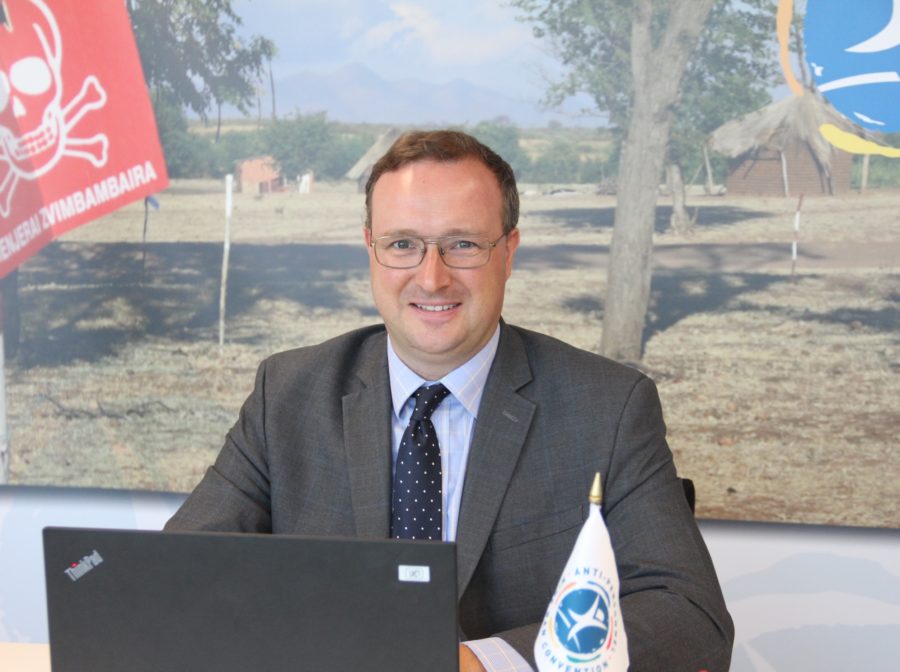7th July 2020 Geneva, Switzerland
Blog: Anti-Personnel Mine Ban Convention goes virtual

It was with some trepidation that I turned up at the offices of the Geneva Centre for Humanitarian Demining (GICHD) for the Opening Session of the first ever virtual intersessional meetings of the Anti-Personnel Mine Ban Convention. Would the new platform, with its interpretation into the UN official languages, actually work? Would there be endless delays whilst colleagues tried to log in?
I am pleased to say that, most of the time, the passing of the floor to speakers and the interpretation all worked well, allowing for the smooth running of meetings. There were a few technical problems for some participants, but that was to be expected. The main thing is that we were able to make these meetings happen, something that was by no means certain given the Covid-19 restrictions.
At the Opening Session, I was pleased to report on the work of the Committee on the Enhancement of Cooperation and Assistance, which the UK chairs. Like other Committees, we review the information submitted by States in their annual transparency reports. We welcomed the reporting on commitment of resources, but also encouraged States to share ideas around alternative and innovative funding, which will only become more important given the constraints on resources post-Covid. We were also happy to see reporting on gender and diversity from some States, but encouraged more sharing of experiences in this important area.
A highlight of the intersessionals was chairing the panel discussion on Aligning Donor Coordination. It was an enormous pleasure to be able to congratulate Chile on their successful clearance of mined areas. We also heard some interesting emerging thinking from DFID on how to align donor theories of change. Germany told us about how the Mine Action Support Group was sharing best practice amongst donors and speaking directly to affected States. Japan told us about their Triangular Cooperation with Cambodia and Colombia. We also heard how donors are integrating gender and diversity considerations into their programme planning.
Our Committee also supported Niger to organise an Individualised Approach meeting during the intersessionals. These meetings are a platform for States seeking assistance with their mine clearance to meet with States and organisations that are in a position to help. Our colleagues from Niger’s National Commission for the Collection and Control of Illicit Weapons (CNCCAI) presented to us on the significant challenges they face given the geographical, security, and weather conditions and on what help they would need to get to zero. Our Committee will continue to support Niger in getting the assistance that it needs.
These were the first meetings of States Parties since the adoption of the Oslo Action Plan and an important opportunity for our Committee to focus on the actions related to cooperation and assistance. The virtual nature of the meetings allowed us to hear directly from capitals, such as Niamey and Santiago, but there is no substitute for discussing these issues physically. I hope we will be able to meet up in person in the near future.